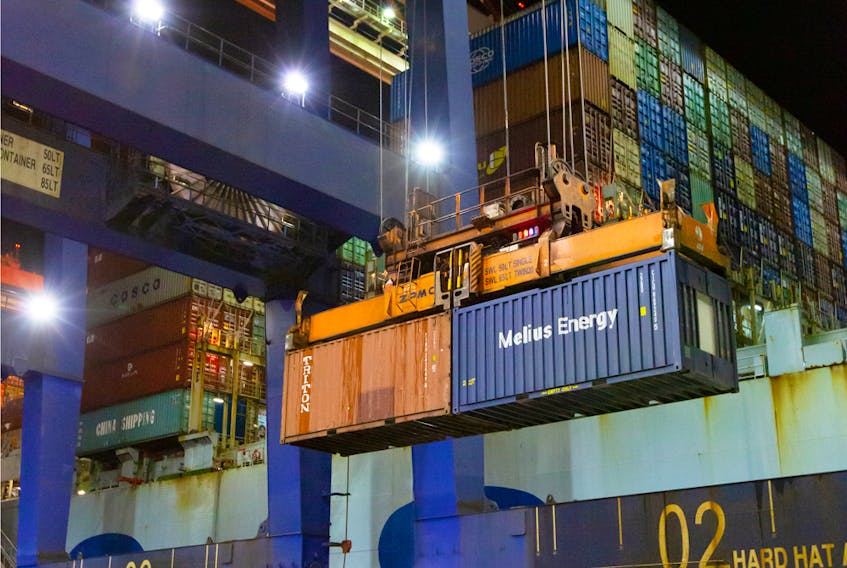As Canadian petroleum producers face capacity limits on export pipelines and legal challenges to build more, a Calgary-based company is testing a new way to transport oilsands by rail and sea in shipping containers that gets around the contentious oil tanker ban.
Calgary-based Melius Energy melts pure bitumen, as the oilsands are known, and pours it into shipping containers after removing diluting agents. When cool, the intermodal containers can be stacked on ships and trains and hauled to market. The company just completed its first test shipment of 130 barrels from Edmonton to Prince Rupert, B.C., to China.
“This is the first shipment — but Melius is prepared to commercialize today. Currently they are working towards finalizing partnerships with several producers in Canada,” according to an emailed statement on behalf of the company.
Now Melius intends to scale up the technology of its Calgary-based partner BitCrude and develop supply contracts with Asian refineries, Melius president Nicole Zhang says.
“Establishing a transportation solution for Canadian energy that delivers tremendous value for local producers while satisfying the demand for our energy internationally is our priority,” Zhang, a former pro golfer on the LPGA circuit, said in a statement.
Canadian oil production reached 4.3 million barrels a day a year ago while the takeaway capacity on existing pipelines remained at about 3.9 million barrels a day, according to the Vancouver-based Fraser Institute. The export constraint has fostered a dependence on the U.S. market and depressed prices for Canadian heavy crude that cost producers almost $21 billion last year in lost revenue, the institute says.
Melius contends the BitCrude method of shipping semi-solid bitumen in custom 20-foot containers exceeds safety regulations because it’s designated as a non-dangerous and non-flammable good that’s non-toxic to marine life as the poisonous diluting agents are removed. And the containers of what it calls True Crude float in salt or fresh water making it recoverable if there was an accident, the company says.
Attempts to get Canadian oil to non-U.S. markets have stalled as projects, such as the $7.4-billion Trans Mountain pipeline expansion from Alberta to the B.C. coast, have been hindered by court challenges and provincial trade spats. The expansion is still years away from completion. Likewise, the proposed Keystone XL pipeline from Alberta to Nebraska has been stymied by opposition from environmentalists, Indigenous communities and ranchers concerned by the threat of pipeline spills.
Addressing those concerns, an online video by Melius says its “True Crude is the world’s safest oil.” It’s “not only safe but also economical and efficient,” it adds.
The BitCrude process was developed by company founder Cal Broder during a decade of research and was partnered with Melius to market the concept, he said in the statement.
“We have now proven that we can ship bitumen to international markets safely and efficiently,” Broder said.
• Email: [email protected]
Copyright Postmedia Network Inc., 2019









